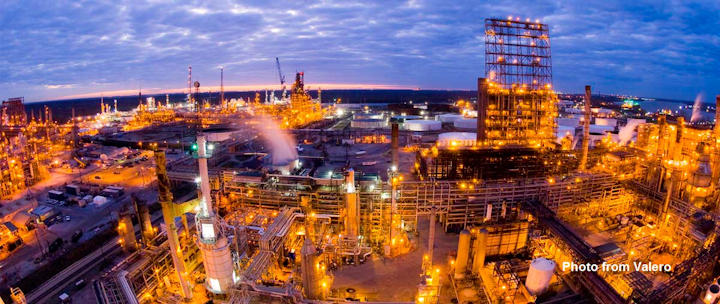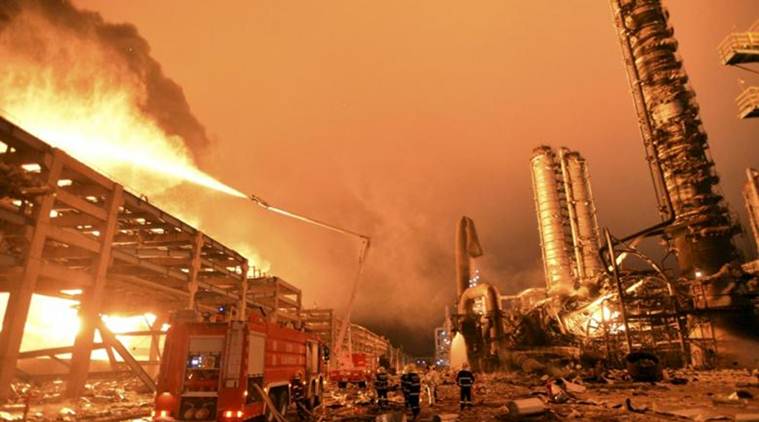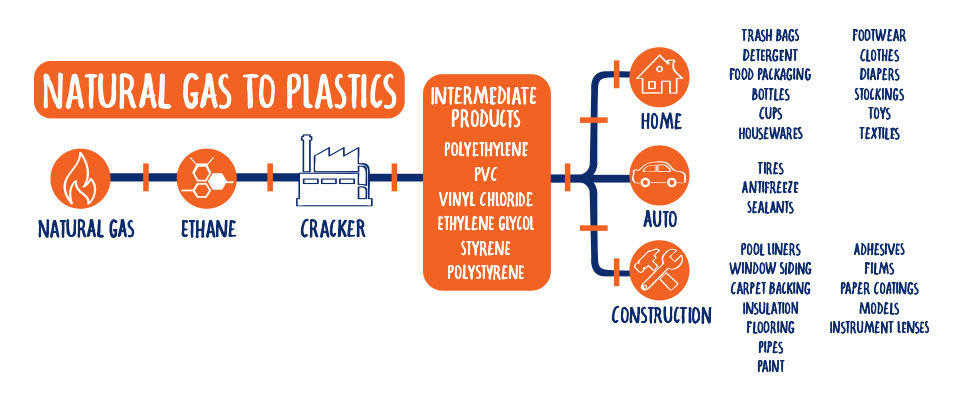
Demand the Fossil Fuel Industry Is Held Accountable for Their Plastic Mess
Hillary Larson / SierraRise / @ Sierra Club
(September 22, 2020) — This is not the typical email we send you. Today, we’re taking a different approach as the plastic pollution crisis is momentous, yet often misunderstood. We felt it was important to provide the whole picture, which is why I took the time to deeply dive into the roots of how single-use plastic is plaguing our planet.
I’m asking you to please take the time to read the full article below, and share the Break Free from Plastic Act — a bill that would address plastic pollution at its root — with your friends and family. That way, together, we can stay alert and block the plastic industry’s attempts to misinform and deceive, to the peril of our health and home.
Thank you, Hillary Larson, The SierraRise team
Demand the Fossil Fuel Industry Is Held Accountable for Their Plastic Mess
You can share the action here: sc.org/ShareBreakFree
Think about plastic pollution. What do you see? A tangled sea turtle? A dead bird with a belly full of bottle caps? A floating pile of ocean debris?
If you’ve ever lived near a petrochemical facility, you might instead envision a scene similar to the image below, which was photographed by Sierra Club organizer Bryan Parras. It was taken on March 22, 2018, overlooking the community of Manchester in Houston, TX. The flare is coming from the Valero refinery.

| The massive Valero refiner in Houston, Texas. |
Valero, and the hundreds of other petrochemical facilities across the United States, are where the plastic pellets used to make all of those soda bottles, six-pack holders, and grocery bags are created. The struggling fossil fuel industry sees plastic production as a lifeline for maintaining their profits as demand in the electric and transportation sector drops.
Petrochemical manufacturing, a precursor to creating plastic, makes up 14 percent of oil use and is predicted to account for 50 percent of oil and fracked gas demand growth by 20501—the same year that there’s estimated to be more plastic pollution than fish, by weight, in our oceans.
The pollution from plastic starts long before these toxic, single-use products ever reach the sea.
Houston accounts for “42 percent of the nation’s petrochemical manufacturing capacity,” according to the city’s website, which appears to be proudly sponsored by Shell, BP, Chevron, ExxonMobil, and other oil and gas corporations.2 However, the reality for people living near these plants is not so rosy. A 2016 study titled “Double Jeopardy,” by the Union of Concerned Scientists and the Texas Environmental Justice Advocacy Services (TEJAS), found “compelling evidence that Houston-area communities with higher populations of color and higher poverty levels face higher risks from chemical accidents and everyday toxic exposure.” 3
Across the nation, corporate polluters are building the majority of these polluting facilities in low income communities and communities of color4 — the bulk of these operations are located in Texas, Louisiana, and threatening to expand in Appalachia. In east Houston, residents who live in proximity to chemical manufacturing are burdened with a high level of exposure to toxic chemicals in their air, water, and soil.5 These chemicals include cancer-causing benzene, ethylene dibromide, and formaldehyde.
The Break Free from Plastic Pollution Act will place a moratorium on new plastic-producing facilities. Make sure as many people as possible speak up!
The pollution created by these toxic facilities during normal operations is bad enough, and catastrophic when something goes wrong. In March of 2019, in Deer Park, which is 5 miles southeast of Houston, a massive tank holding millions of gallons of petrochemicals caught on fire.6 The fire released six million pounds of pollutants into the air in the first 24 hours. It burned for five days. This was not an isolated incident. The EPA estimates that 150 “catastrophic accidents,” such as fires or explosions that release toxic chemicals, happen each year in these sorts of facilities.7

| Explosion at a Houston-area petrochemical plant, which released tens of millions of pounds of pollutants. |
On the other side of the Texas and Louisiana border, Formosa Plastics, a corporate serial offender with a long history of environmental racism, plans to build 14 plastic production plants in Louisiana.8 The venture would pour toxic pollution into the air of surrounding cities and towns was greenlit by the state in January, but is being met with staunch resistance from communities who would be most impacted by the pollution.9
Residents of Port Lavaca, Texas, a majority Latinx community, won a decades-long legal fight to hold the Formosa Plastics Company liable for unlawfully dumping billions of plastic pellets and other pollutants into Lavaca Bay, Cox Creek, and other waterways.10 The company was also responsible for one of the worst environmental disasters in Vietnam, destroying the livelihoods of thousands of fishers after poisoning fish by releasing chemicals, including cyanide, into the ocean.11
Now, Formosa Plastics has its sights set on St. James Parish, Louisiana, which is part of a series of predominantly Black communities that stretch along the banks of the Mississippi River from New Orleans to Baton Rouge. Currently, the region is home to 32 petrochemical plants: One for every 656 parish residents.12 According to the Center for Biological Diversity:
“In Louisiana opponents of the Formosa project decry its location adjacent to a low-income, predominantly African-American community that has suffered severe health effects from decades of exposure to industrial pollutants. St. James, St. John, and St. Charles parishes — known as Cancer Alley or Death Alley — have some of the highest levels of cancer-causing chemicals in the air and water of any area in the United States.”13
As reported by ProPublica, the proposed Formosa projects could TRIPLE nearby residents’ exposure to air pollution in a region already infamous for killing its residents with pollution.14 If permitted, the petrochemical facilities would be allowed to release up to 1.6 million pounds of toxic chemicals annually.15
The proposed chemical facilities would also emit upwards of 13 million tons of greenhouse gases per year. That’s the equivalent of three coal-fired power plants, and would be the largest new source of greenhouse gases of any chemical, oil, or gas project in the US.16,17 To add more insult to injury, the project will be built over historic cemeteries, most likely burial grounds of enslaved people.18
When the company was asked why they build in the US, rather than in its corporate home of Taiwan, Formosa Plastics Chairman Jason Lin said, “In Taiwan the government treats petrochemical investment as a polluting industry and stigmatizes us.” In contrast, “the [US] government encourages investment as long as you meet the requirements of environmental protection regulation”19 — environmental protection requirements the Trump administration has been fervently stripping.20
Rise St. James, a local community organization, and others continue to fight the “Sunshine Project.” Opponents delivered a petition at the Formosa’s annual shareholder meeting in Taipei, Taiwan to demand the company abandon the project. They also hosted protests during the recent Juneteenth holiday to call on Louisiana Governor John Bel Edwards to place a moratorium on the developments.21
These existing and proposed petrochemical facilities are clear cases of environmental racism at its worst. In his article, “Racism Is Killing the Planet,” Hop Hopkins, Sierra Club’s Director of Strategic Partnerships, wrote: “When we pollute the hell out of a place, that’s a way of saying that the place — and the people and all the other life that calls that place home — are of no value… If our society valued all people’s lives equally, there wouldn’t be any sacrifice zones to put the pollution in. If every place was sacred, there wouldn’t be a Cancer Alley.”22 Similar stories to the ones in Houston and Louisiana will continue to play out across the country so long as we rely on an overabundance of cheap, disposable, single-use plastic products that last virtually forever in our environment.

| Photo of plastic pollution on a beach |
In recent years, there has been a public outcry against plastic waste, specifically single-use items. Communities adopted safeguards, companies made commitments, and Congress proposed bills to tackle the problem.
Then coronavirus swept the globe — another catastrophe that is disproportionately killing communities of color and is more deadly when linked with fine particulate air pollution.23,24 Throughout this crisis, the whole gamut of polluting industries have lobbied for rollbacks on environmental protections and enforcement. Big Plastics alone asked for a 1 billion dollar bailout. The Trump administration has often been more than happy to comply, once again placing the well-being of corporations over people.25,26
Some plastic products are needed in this crisis; many life-saving protective devices are made of plastic — from masks, to gloves, to ventilators. But crossing the line of necessity, the plastic industry saw an opportunity that had nothing to do with protecting our health, and they didn’t hesitate to take full advantage.
The industry quickly launched a public relations campaign to attempt to restore its tattered reputation. Their efforts included international fear-mongering, and claiming without credible evidence that plastic is somehow safer than reusable products, which they called “virus-laden.” Their misinformation was so outrageous that 119 scientists recently published a statement to reassure the public that reusable containers and products are safe to use during the pandemic.27
Fortunately, we have the opportunity to hold polluters accountable. Share the Break Free from Plastic Pollution Act now!
Making new plastic from fossil fuels is far cheaper than making these items from recycled materials, particularly with oil prices dropping during the pandemic. This is especially problematic when combined with the surge of single-use plastic due to COVID.28
Even before this calamity, to fuel the demand for new plastic, there were plans to build over 300 new petrochemical facilities across the nation, which include Formosa’s 14.29 This would be catastrophic for our climate: the growth in plastic production would produce the equivalent greenhouse gas emissions of 295 coal plants by 2030.30 And the people living in the cities and towns adjacent to those proposals will continue to be caught in the crosshairs.
No one solution will end our plastic crisis and, far too often, the onus is placed on us — often by Big Plastics31— to solve it as consumers and individuals. We can and must all do our best to use less plastic, continue to push local legislators to instate critical plastic bag bans and fees, and urge companies to do better. These solutions are necessary; however, we can’t protect communities without broad policies that also address pollution at its root: which means regulating petrochemical production.
Fortunately, bold members of Congress are working to do just that. In February, Senator Tom Udall and Representative Alan Lowenthal introduced the Break Free from Plastic Pollution Act. The bill would, among other things, place a moratorium on new plastic-producing facilities and investigate the harm caused by these facilities when they poison our air, water, and climate.
Thank you for making sure more people across the country speak up here!
Together, we must continue to demand — in our actions, purchases, and advocacy — that companies and elected leaders protect our communities by holding Big Plastics accountable for their egregious behavior.
In it together, SierraRise
P.S. Read the article online here: sc.org/plasticinjustice

| References: 1. Beth Gardiner, “The Plastics Pipeline: A Surge of New Production Is on the Way,” YaleEnvironment360, December 19, 2019. 2. “Greater Houston Partnership,” Greater Houston Partnership, accessed August 15, 2020. https://www.houston.org/ 3. “Double Jeopardy in Houston,” Union of Concerned Science, August 22, 2019. 4. “Living in the Shadow of Danger,” Center for Effective Government, January 2016. 5. Erica Jackson, “National Energy and Petrochemical Map,” Fracktracker, February 28, 2020. “A Closer Look at Air Pollution in Houston: Identifying Priority Health Risks,” Mayor’s Task Force on the Health Effects of Air Pollution, 2006. 6. Antonia Juhasz, “Boom Goes the Plastics Industry,” Sierra Magazine, June 30, 2019. 7. “Double Jeopardy in Houston,” Texas Environmental Justice Advocacy Services, October 2016. 8. David J. Mitchell, “Texas judge finds Formosa ‘serial offender’ as environmentalists fight plans for Louisiana,” The Advocate, June 29, 2019. 9. Oliver Laughland, “Louisiana greenlights huge pollution-causing plastics facility in ‘Cancer Alley’,” The Guardian, January 8, 2020. 10. Kiah Collier, “Federal judge rules against Formosa Plastics in pollution case, calling company a ‘serial offender’,” The Texas Tribune, June 28, 2019. 11. Angel L Martínez Cantera, “‘We are jobless because of fish poisoning’: Vietnamese fishermen battle for justice,” The Guardian, August 14, 2017. 12. Mara Kardas-Nelson, “The Petrochemical Industry Is Killing Another Black Community in ‘Cancer Alley’,” The Nation, August 26, 2019. 13. “Federal Court Rules Formosa Plastics Is Liable for Plastic Pollution in Texas,” The Center for Biological Diversity, June 28, 2019. 14. Lylla Younes, “What Could Happen if a $9.4 Billion Chemical Plant Comes to “Cancer Alley”,” ProPublica, November 18, 2019. 15. David J. Mitchell, “For massive new plants, Formosa wants OK to double amount of chemicals released into St. James Parish air,” The Advocate, July 8, 2019. 16. Olivia Laughland, “Louisiana greenlights huge pollution-causing plastics facility in ‘Cancer Alley’,” The Guardian, January 8, 2020. 17. Sharon Lavigne, “Opponents of Formosa Plastics’ Louisiana Plant Petition Shareholders to Drop Project at Taiwan Annual Meeting” RISE St. James, June 10, 2020. 18. Olivia Laughland and Lauren Zanolli, “Huge toxic site to be built on grounds where slaves are likely buried, files reveal,” The Guardian, December 18, 2019. 19. Bruce Einhorn and Joe Carroll, “A Plastics Giant That Pollutes Too Much for Taiwan Is Turning to America,” Bloomberg, December 13, 2019. 20. Nadja Popovich, Livia Albeck-Ripka, and Kendra Pierre-Louis, “The Trump Administration Is Reversing 100 Environmental Rules. Here’s the Full List,” The New York Times, July 15, 2020. 21. Erica Cirino, “St. James Parish Takes on Big Plastic,” Hakai Magazine, June 26, 2020. 22. Hop Hopkins, “Racism Is Killing the Planet,” Sierra Magazine, June 8, 2020. 23. Richard A. Oppel Jr., Robert Gebeloff, K.K. Rebecca Lai, Will Wright, Mitch Smith “The Fullest Look Yet at the Racial Inequity of Coronavirus,” New York Times, July 5, 2020. 24. “Air pollution linked with higher COVID-19 death rates,” Harvard T.H. Chan School of Public Health, May 5, 2020. 25. Sharon Lerner, “Big Plastic Asks Congress for $1 Billion Coronavirus Bailout,” The Intercept, April 27, 2020. 26. Beth Gardiner, “Why Covid-19 Will End Up Harming the Environment,” National Geographic, June 18, 2020. 27. “Health Expert Statement Addressing Safety of Reusables and COVID-19,” June 2020, Greenpeace USA and UPSTREAM. https://storage.googleapis.com/planet4-international-stateless/2020/06/26618dd6-health-expert-statement-reusables-safety.pdf 28. Rachel A. Meidl, “Pandemic, Plastics and the Continuing Quest for Sustainability,” Forbes, April, 14, 2020. 29. Reid Frazier, “America’s Natural Gas Boom is Fueling a Global Plastics Boom,” NPR, November, 20, 2019. 30. “Plastic and Climate: the Hidden Costs of a Plastic Planet,” Center for International Environmental Law, May, 2019. 31. Sharon Lerner, “Waste Only: How the Plastics Industry is Fighting to Keep Polluting the World,” The Intercept, July 20, 2019. |